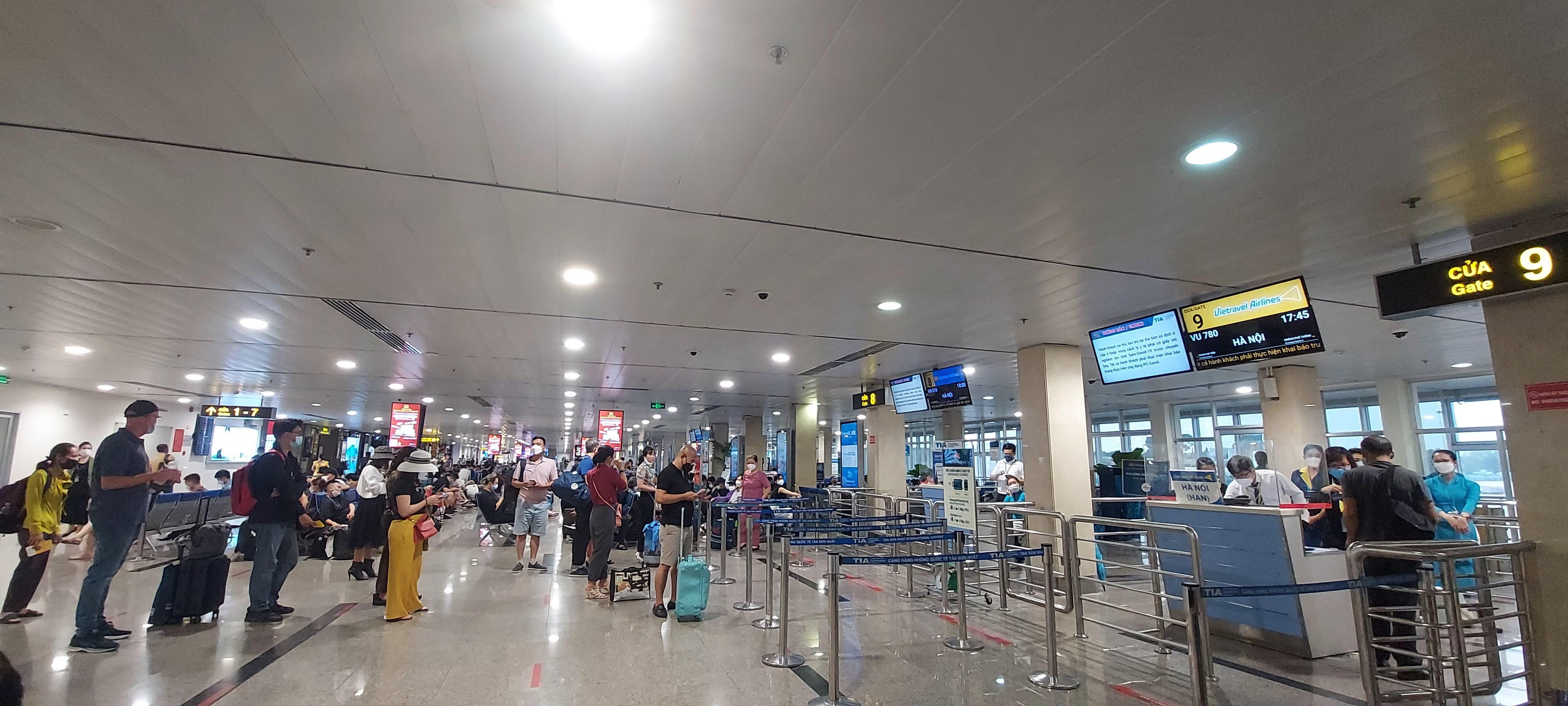
In a report to the Prime Minister on the implementation of the Government’s Resolution 105 on support businesses, cooperatives and business households amid Covid, the Ministry of Planning and Investment (MPI) said the policies and solutions shown in the document are highly appreciated by the business community and address the difficulties enterprises are facing.
A survey conducted by the Vietnam Chamber of Commerce and Industry (VCCI) found that 91.5 percent of enterprises know about Resolution 105; 81 percent say the policies are timely; 89 percent say the goals set in the resolution are reasonable; and 81.4 percent say the measures will help enterprises, cooperatives and business households overcome difficulties.
Soon after the release of Resolution 105, a series of policies and solutions were issued, creating a positive motivation for production and business.
Most enterprises, cooperatives and business households which had to suspend business to observe regulations on Covid-19 prevention and control have resumed their operation, while the production chain disruption has been settled. The financial cost burdening enterprises has been eased through policies on electricity bill reduction, electricity price cuts, and corporate income tax and value added tax (VAT) cuts.
The difficulties in cash flow were also eased thanks to policies on debt payment rescheduling, interest remission and keeping debt groups unchanged until June 30, 2022. The lending interest rates decreased by 1.55 percent compared with the pre-pandemic period.
It is estimated that by the end of 2021, more than 1.1 million customers had support with the total amount of interest cuts reaching VND26 trillion, higher than the target set by the resolution.
According to the Ministry of Planning and Investment, in Q1 2022, the number of newly set up enterprises was 34,590, an increase of 18.1 percent, while 25,588 businesses resumed their operation, an increase of 73.6 percent compared with the same period last year.
This was the highest number of businesses re-joining the market in Q1 so far, which was 2.1 times higher than the average level in Q1 of 2017-2021, according to MPI.
The figures show that the confidence of the business community has returned after two years of pandemic.
Policies must be right, implementation must be quick
MPI pointed out that implementation of some tasks and solutions shown in Resolution 105 remains slow, such as the proposal on trade union fee reductions, the support to attract workers back to work, and support in pandemic prevention and control. Meanwhile, the disbursement of the credit package to help enterprises pay workers was lower than targeted.
The administrative procedures related to the healthcare sector remain complicated. When Covid broke out in Hanoi in late February and early March, workers and people had to queue up at local medical centers to obtain certification about infection or recovery from Covid-19 so as to enjoy insurance policies.
Meanwhile, many medical centers lacked workers and could not apply information technology in controlling Covid patients.
MPI believes that some localities are not being flexible in creating favorable conditions for enterprises to resume their production and business, and in implementing pandemic prevention and control measures in accordance with the Government’s instructions.
Stressing that it’s necessary to learn a lesson from shortcomings, MPI said that first of all support policies need to be issued at the right moment and need to address enterprises’ measures. Therefore, serious participation of all ministries and branches, and local authorities at different levels is very important.
MPI stressed that the effectiveness of policy implementation not only depends on content, but also on enforcement. Tardiness in implementation will lead to low effectiveness.
The number of Covid-19 infections has been on the decrease since early April, but MPI said Vietnam must not be complacent, warning that Vietnam needs to be on high alert in case new coronavirus variants appear.
The political uncertainties in Ukraine are expected to cause negative impact on Vietnam’s economy. The crude oil and finished petroleum products have seen prices increasing sharply, which is leading to an increase in import input material prices and affecting enterprises, especially ones in the transport sector and those using petrol and oil as input fuels. Also, higher petroleum prices will push up goods prices, thus putting pressure on inflation.
Luong Bang